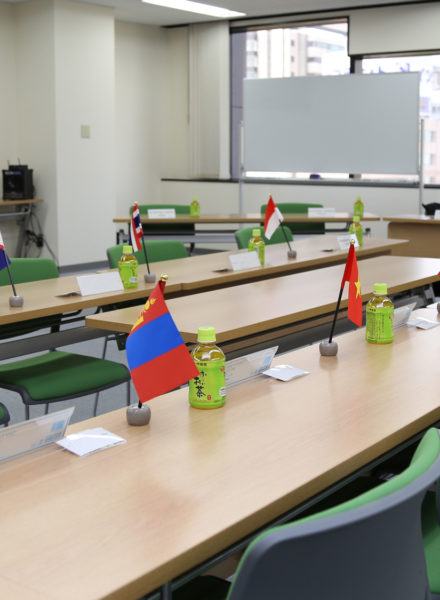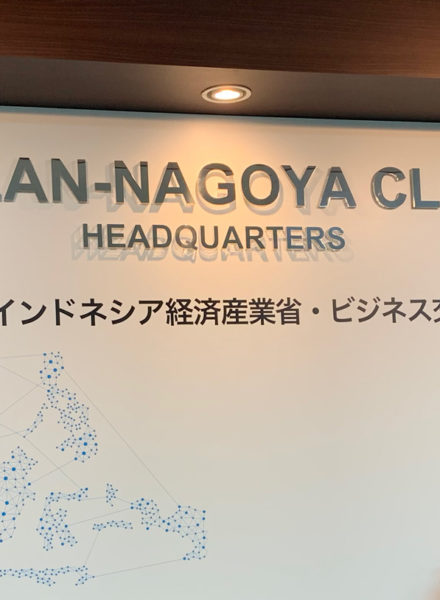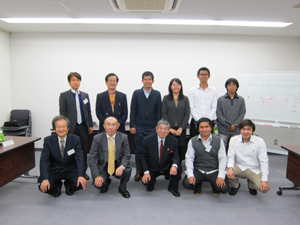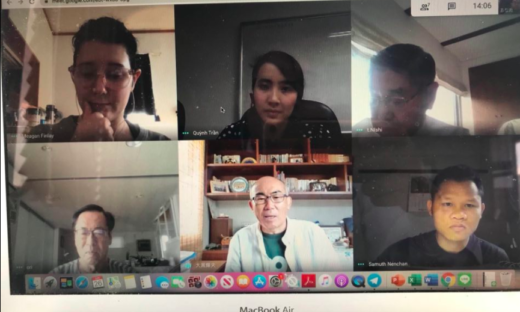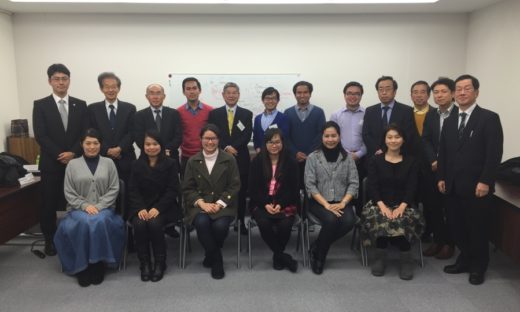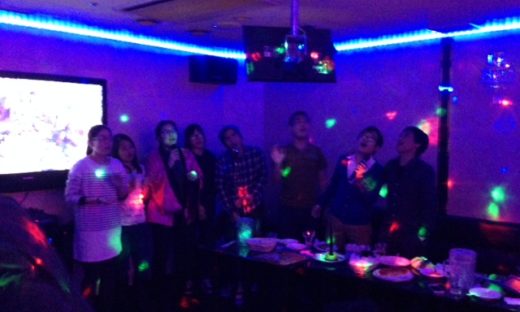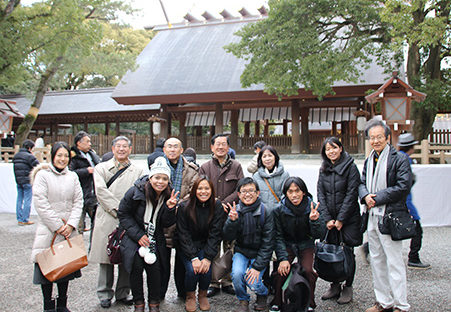第8回ミーティング報告書 2015年3月26日 (The 8th Meeting Report March 26, 2015)

今後の活動フレーム
当クラブも8回を迎えました。このあたりで過去のテーマを振り返り、さらに充実した内容にするため、全員で対話を行いました。
留学生の皆さんが何を望み、日本側は皆さんに何を伝えたらよいか。ASEAN-NAGOYA CLUBが発展していくためには、留学生のニーズを的確につかみ、そのニーズに基づいて私たちOBが対話を通じて支援していくことがとても大切です。今日は、全員で確認作業をいたしました。
過去7回の内容をカテゴリーに分けますと、大きく4つに分類されます。①日本側に母国の姿を伝えたい。②日本の文化伝統、日本人の考え方を知りたい。③日本の企業について知りたい。④帰国後の夢を伝えて、相談に乗って欲しい。
またASEAN-NAGOYA CLUBの設立目的をあらためて確認いたしますと、以下のようになります。1)ASEAN留学生の皆さんが日本の文化・伝統を正しく理解し、知日派になってもらう。2)名古屋大学OBが中心となり、日本人学生、日本企業も含めた交流を通じて、ASEAN各国のリーダーとなる留学生と信頼関係を構築し、帰国後も含め末永く支援する。
これまでの対話の内容は、留学生にとっても、日本側にとっても、価値ある情報であふれていました。そうした成果をふまえ出版物にするアイデアも出ました。しかし、広く世の中の人にお伝えしていくことも重要であるとの認識を持ちながらも、実際のこの会の存在自体、得がたい価値があるとの共通認識となりました。ますます御期待に応えていかなければなりません。
また、冒頭でも述べましたように、今後の対話をさらに充実させるために、留学生のニーズをしっかりつかみ、その上で議論を重ねていくことが重要です。そうした観点から、次回以降の会合に反映させるテーマを留学生の皆さんから、提出してもらうことにしました。
希望するテーマの参考例として、「海外経験のない日本人学生と留学生はなぜ交流が実現しないのか」という「深刻なテーマ」について話し合いました。留学期間が長期にわたり、日本語を習得している留学生でも日本人学生との交流ができないそうです。帰国子女との隔てはないようですが、海外経験のない日本人学生は、日本人同士でかたまり、交流しようとしないようです。グローバリゼーションの時代にありながら、閉鎖的な日本人のDNAはいまだ受け継がれているようです。このテーマは、今年のどこかでしっかりと議論をしたいと思います。
留学生が日々、心に留めながら、日本社会について疑問に思うことを率直に話し合っていくこの会は、日本とASEANの架け橋として、非常に重要な機能を果たしていることを再認識するのです。
Future Activity Frame
This time was our 8th meeting and we looked back on past themes and had a dialogue with everyone to make the content even more fulfilling. As we said from the beginning, this club was established as a bridge between international students and Japanese to arise a mutual understanding. We tried to explore what is expected by international students and we provide an overview of Japanese society and culture. ASEAN Nagoya C activities attempts to provide space for dialogue, discussion, and open insights for both parties to understand each other.
The contents of previous topic of discussion were: ① description of Japanese society and each ASEAN countries ② Japanese cultural traditions and Japanese way of thinking. ③ Japanese business and private sectors ④ expectation and plan in the future. The purposes of ASEAN-NAGOYA CLUB establishment are as follows.
1) creating a mutual understanding of culture and traditions among ASEAN countries and Japanese.
2) building a mutual trust among International Students who will be leaders in ASEAN countries and Japanese companies through exchange and support after they return home to their countries.
The content of the dialogue so far has been filled with valuable information for both international students and the Japanese. Based on these results, we came up with the idea of making a publication. However, while recognizing that it is important to convey it to people in the world, it has become a common recognition that the actual existence of this society itself is of invaluable Value.
As mentioned at the beginning, it is important to grasp the needs of international students and hold discussions on them in order to enhance future dialogue. From this point of view, we have decided to ask international students to submit themes for the next and subsequent meetings.
As a reference example of the desired theme, we discussed the “serious theme” of “why do International students find it hard to interact with Japanese students who have no overseas experience “. It seems that even international students who have learned Japanese for a long period of study abroad cannot interact with Japanese students.
International students were challenged by academic, social, and emotional difficulties in the new environment. They were not familiar with social and cultural norms, which could negatively affect social interaction among the international students and Japanese students.
As a coping strategy, the study suggests that international students establish supporting groups with co-nationals or friends who share similar cultural backgrounds. Additionally, interaction with Japanese students is encouraged as a means of coping with adjustment challenges, which positively influences students’ satisfaction with life and learning. On the other hand, Japanese students who have no overseas experience do not seem to have some interest to interact with international students with some reasons. We are going to discuss this sometime this year.
参加者:
<日本人メンバー>
小里氏、西氏、鈴木氏、大黒氏、松久氏(コーディネーター)、田中氏(スタッフ)
<留学生メンバー>荻巣先生(コメンテーター)、島津氏(名古屋大学大学院コーディネーター)Mr.Mardiansyah Mardis、Mr.Indra Kesuma Nasution、Mr.Lim Lyhong、Mr.Pak Chanlino、Ms.May Thiri、Ms.Jaroonruangrit Nalynya、Ms.Sisouk Boualaphiane
Participants:
Mr. Ori, Mr. Nishi, Mr. Suzuki, Mr. Oguro, Mr. Matsuhisa (coordinator), Mr. Tanaka (staff)
Ms. Ogisu (Commentator), Ms. Shimazu (Nagoya University Graduate School Coordinator) Mr. Mardiansyah Mardis, Mr.Indra Kesuma Nasution, Mr.Lim Lyhong, Mr.Pak Chanlino, Ms. May Thiri, Ms. Jaroonruangrit Nalynya, Ms.Sisouk Boualaphiane


